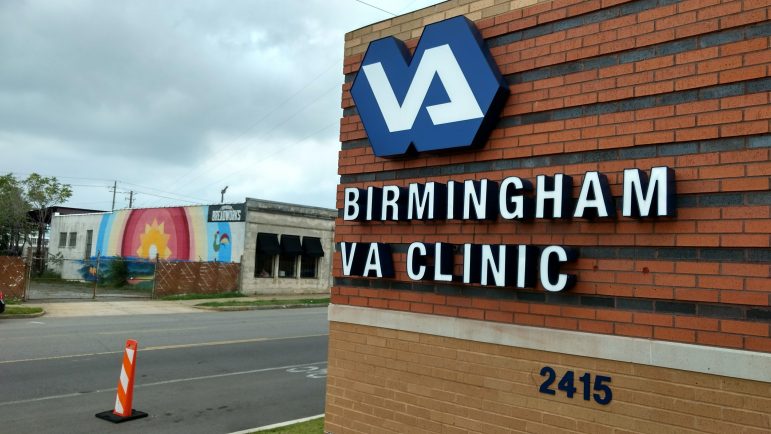Vashone Smith served in the Army and National Guard for 16 years and was stationed in Iraq. She’s no longer in the military but is at Birmingham’s VA Medical Center several times a week. Years of working in motor pool damaged her back.
“You pick up a lot of heavy things in motor pool,” says Smith.
Before she gets to her appointment, she has to wait for a shuttle to pick her up from the VA’s parking garage, about seven blocks from the main medical center. The wait for the bus is never as bad as the wait to schedule an appointment.
Sometimes it takes a whole month,” says Smith. “Or maybe two. But last year it took me four months to get an appointment.”
Veterans needing medical care in the United States have often had problems getting that care. Wait times at VA hospitals across the country can last for months. At the Birmingham VA, wait times doubled from 2015 to 2016.
The delays captured the attention of Congress and they have been getting shorter. The same thing happened in Birmingham — wait times got worse and then better. But the local VA faces many challenges to keep wait times down.
One of the biggest is demand. Appointments increased by over 9 percent from 2015 to 2016 at the Birmingham VA. It’s hard to say why more veterans are using the VA. One theory is all the news coverage has actually led to more veterans seeking appointments.
“When you increase demand or increase the number of patients needing care, that’s going to put a burden on the system and make patients wait longer,” says Debbie Litton, the group practice manager at the Birmingham VA.
The answer seems simple — hire more doctors. Litton says they’ve been trying to do that. But there’s fierce competition with the private sector for specialists, especially in a place like Birmingham which has a booming medical sector.
“They make a whole lot more money in the community than they would probably make in a salary at the VA,” says Litton.
Then there’s the matter of space – there simply isn’t enough.
“You had to have some of them work from home,” says Jeff Hester, a spokesman for the VA. “Work out of this space. Share space. So it was never an efficient way to really get things done and that’s what we’re trying to do.”
The main medical center opened in 1953. There have been renovations over the years, but Hester says they’ve hit the limit of how much the building can expand. It’s why the VA opened a new clinic near its main facility last year. Hester says they’ve asked Congress for even more buildings.
Wait times have declined this year. Less than five percent of appointments took longer than a month to complete.
Carrie Farmer researches veteran health care at the Rand Corporation. She says the goal should be zero veterans waiting that long. “But, reasonably, keeping that below five percent of your cases is fairly good performance,” Farmer says.
When it comes to the quality of care, Birmingham scores near the bottom in patient satisfaction compared to other VA’s. That’s according to a survey from the Department of Veterans Affairs. But the 15 veterans we spoke to all praised the care. Roscoe Butler is the deputy director for health care at American Legion, a veterans’ advocacy group. He hears positive reviews for the VA’s care from veterans across the country.
“Most veterans tell us that they’re happy with the care that they get once they gain access to the system,” says Butler.
Vashone Smith says she prefers the VA because of the doctors. “They concerned about me,” says Smith. “I don’t get rushed in and I don’t get rushed out. They take their time with me.”

